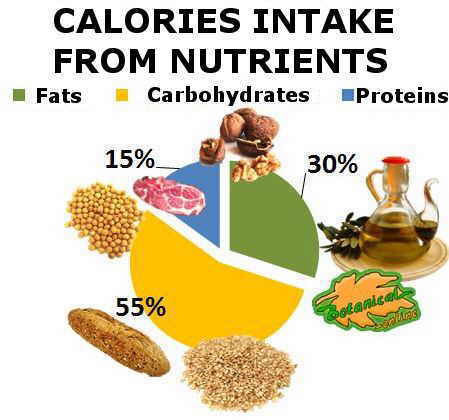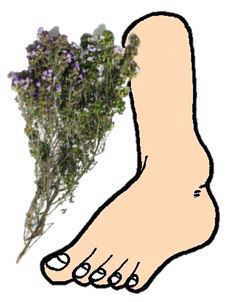Contents
- 1 Recommended amount of fat
- 1.1 IMPORTANCE OF FATS AND RECOMMENDED FAT QUANTITY
- 1.2 What are fats necessary for?
- 1.3 What are the main sources of fats?
- 1.4 What is the recommended amount of fat?
- 1.5 Recommended fat type: How much fat should be eaten daily?
- 1.6 Dangers of excess of fat in the diet
- 1.7 Consequences of eating to much fat
- 1.8 Foods high in fat
Recommended amount of fat
IMPORTANCE OF FATS AND RECOMMENDED FAT QUANTITY
What are fats necessary for?
Fat is an essential nutrient for health. It is part of the membranes of all the cells of the organism, they allow the connection between neurons and they are a reserve of necessary energy when we spend a long time without eating, for example, during the night.
There are many types of fats, which can generally be classified as:
- Fats of animal origin: They consist mainly of saturated fatty acids and cholesterol, and contain very little unsaturated fats. Eating too much is not recommended as they raise bad cholesterol.
- Vegetable fats: These are called omega fats or healthy fats. They consist mainly of polyunsaturated and monounsaturated fatty acids. Vegetables do not contain cholesterol.
It should be clarified that all foods contain both types of fats, but in vegetable foods, saturated fats are in very low quantities.
What are the main sources of fats?
Among the main sources are: olive oil, sunflower oil, linseed oil, and nuts: sunflower seeds, walnuts, almonds, etc.

Photo of foods rich in fats: Vegetable oils, avocado, oily fish, nuts and seeds. Butter fats, lard and sausages also contain a lot of fat.
What is the recommended amount of fat?
The American Heart Association recommends the following fat intakes:
- It is recommended that from all the total calories ingested in a day, only 30-35% come from fats. The rest of the calories should come from the intake of carbohydrates and proteins.
- Within this recommended 30% of daily calories from fats, it is recommended that those coming from saturated fats should be less than 10%
- Within the same total of fats, those that come from monounsaturated fats represent 15%.
- Of the total fat ingested in one day, the intake of polyunsaturated fats should be 10%.

The graph shows where total calories from the diet come in percentages. It should be taken into account that 1 gram of carbohydrate contributes 4 calories, and that 1 gram of fat contributes more than double: 9 calories. Therefore, with small amounts of fat, you get many more calories than with the same amount of carbohydrates. © Botanical-online.com
Recommended fat type: How much fat should be eaten daily?
The amount of recommended daily fat depends on the caloric needs of each person. As a general guideline, the table below shows the maximum total fat not to be exceeded.
One gram of fat provides 9 calories. It is understood that the remaining calories to be covered must be supplied through carbohydrates (1 gram of carbohydrates provides 4 calories) or protein (1 gram of protein provides 4 calories).
For an overweight adult, you can reduce your daily fat intake to 50g:
Total calories per day (Kcal) | Maximum total fat intake |
1800 | 60 g |
2000 | 67 g |
2500 | 83 g |
2800 | 93 g |
3000 | 100 g |
If you want to lose weight it is recommended not to exceed 5 servings of fat per day, considering a ration the vegetable oil content of a spoonful of tea.
The following table shows an equivalence of rations between different fats:
Equivalence of fat units | |
1 teaspoon vegetable oil = | |
2 teaspoons margarine low in calories = | |
2 teaspoons mayonnaise = | |
1 tablespoon of seeds or nuts = | |
10 small olives | |
5 large olives | |
1teaspoon of salad dressing. |
Dangers of excess of fat in the diet

Bakery is rich in sugar, but also hides a lot of saturated fat in its composition (butter, cream, chocolate, yolk, butter, etc.)
In general, a diet rich in fiber and low in fat is recommended, as it is a diet rich in vegetables that helps protect against certain diseases such as cancer.
Among the high-fat foods in the diet, it is recommended to use vegetable oil and nuts, reducing meat and sausage foods, which would contain excess fat and, in addition, unhealthy fat.
A diet too high in fat carries numerous diseases, as well as an increase in weight that can produce obesity.
A diet low in fat is necessary to have a healthy body, but fat can not be completely suppressed. It must be taken in moderation, so that this element can perform a series of basic functions in the body.
Consequences of eating to much fat
A high-fat diet can produce health problems like:
- Obesity
- Poor circulation
- Varicose veins
- High cholesterol
- High triglycerides
- Stones in the gallbladder
- Diabetes
- Hypertension
- Cardiovascular problems
In addition, the American Heart Association recommends, for good heart and artery health, the following main points:
- Reduce cholesterol levels if you have high levels
- Reduce intake of foods rich in animal fats and cholesterol. With regard to cholesterol, it is advised not to ingest more than 200 mg daily. (See: Table of foods rich in cholesterol)
- Control the amount of salt added to meals. Consumption of salt should not exceed 2500 mg daily (equivalent to one teaspoon of sodium chloride)
- Perform some physical activity or daily walk of half an hour.
Foods high in fat
Many foods are well known for their fat content.
Especially outstanding are oils. However not only oils have fats, but other foods are very rich in fat, although, apparently, they do not seem to have this component.
They are foods that contain hidden fats, such as chocolate or pastries.
* Related information:
![]() More information on fats.
More information on fats.








